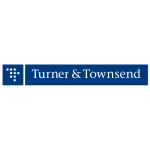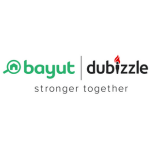Trusted by 100s of thriving companies in the UAE for health insurance consultations










Why choosing the right medical insurance adviser matters
The most talented people are no longer looking for the highest wages. Today, employee well-being is what drives a happier, healthier, more productive workforce. Your insurance solution needs to keep up.
Unfortunately, most businesses we speak to feel exploited by the marketplace. They're uncertain about their insurance, their ability to show a return on investment, and don't feel looked after.
"The only time the phone rings, is when something goes wrong".
But worse than this, they feel this is just how the system works. Based on our own research....
Security
75% of businesses feel uncertain when it comes to their group medical insurance.
Value
88% of businesses believe they're overpaying for their group medical insurance.
Confidence
Only 2% of businesses believe all parties are acting in their best interests.
How a health insurance consultant helps businesses in the UAE
When it comes to group medical insurance in the UAE, the bell curve is as real as in any other domain of performance.
Companies tend to sit in one of four levels.
Most know they need a better solution for their people, but are simply too busy 'holding back the dam' to focus proactively on the future.
They need help turning their insurance solution into a genuine competitive advantage.
An adviser that's by their side.
Where are you now, and where do you want to be?
Learn how to better position your organisation for future success
.webp?width=1200&height=627&name=wellbeing%20guide%20cover%20(1).webp)
OUR PROMISE – Trusted health insurance adviser & consultations
Essential factors to consider when choosing a medical insurance plan
In order to achieve this, you need:
OUTCOME ONE
Security
How secure do you feel about your insurance right now?
This is about moving you from feeling at risk and reactive, to a place where you feel certain about the insurance solution you have.
No more painful, last-minute renewals. Move from transactional, to truly insightful.
"Our policy renewals were seamless, and proactively driven by the AES team to ensure the best solutions for the school and the staff. Our AES representatives are extremely reliable and responsive and always go the extra mile to support our School and staff needs".

OUTCOME TWO
Value
How sure are you about demonstrating ROI?
You will move from a nagging feeling of overpaying or being purely economical, to a place where your insurance is optimised.
Move away from policies, this is about people.
"Their response time to any query or concern is resolved almost immediately. They maintain a personal approach to each member of our team. I cannot recommend this company enough to anyone looking to have peace of mind when it comes to covering staff for medical aid".

OUTCOME THREE
Confidence
How sure are you that all parties are acting in your best interest?
Your relationship with your insurance adviser will no longer feel opportunistic or transactional. Instead, you'll feel truly fought-for.
You and your staff no longer feel like a number.
"The ongoing day-to-day support we receive from AES goes well beyond the normal broker role. They support not only our employees 121 but also our wellness campaigns, including sponsoring initiatives aimed directly at proactive wellness screening."

Understanding group medical insurance for companies in the UAE
To stay competitive, succeed and grow, HR managers and business leaders in the UAE must give careful thought to their group medical insurance. In the UAE, group medical insurance for companies is not just a legal requirement but also a powerful tool for attracting and retaining top talent, who, now more than ever, are looking for more than simply the highest compensation. The optimum plan delivers on company objectives as well as offering cost-effective coverage for employees and their dependents, ensuring access to quality healthcare services and wellness initiatives. When selecting a group medical insurance plan, it's essential to consider factors such as coverage limits, network size, and additional benefits.
Many businesses in Dubai find it beneficial to meet face to face with a health insurance consultant to navigate the complexities of available options. These specialists can help tailor plans to meet specific company objectives while ensuring compliance with local regulations. A well-designed group medical insurance plan can improve employee well-being, reduce absenteeism, and increase productivity. By investing in comprehensive health coverage, companies demonstrate their commitment to their workforce's health and security, fostering a positive work environment and potentially improving their bottom line.
Common mistakes to avoid when purchasing business health insurance
Instead of simply offering the tools, tips and technology at the surface of the problem, we choose to go deeper...
The financial advantages of investing in employee health insurance
Investing in employee health insurance, specifically group medical insurance, offers significant financial advantages for companies, long term. A health coverage specialist can help businesses understand how comprehensive health insurance reduces absenteeism and increases productivity. Employees with access to preventive care and timely medical treatment are less likely to take extended sick leave, positively impacting the company's bottom line. Moreover, offering robust health benefits can be a cost-effective way to attract and retain top talent, reducing recruitment and training costs. A medical insurance adviser can demonstrate how this investment can lower overall compensation costs by offsetting higher salaries with valuable benefits.
AES have been a trusted partner for over 3 years now and we are extremely happy with the level of service provided. We work together very closely, and AES provides us with valuable insight, advice and expertise. Their wellness and wellbeing offerings are extremely valuable and effective, and they truly go above and beyond to ensure both our employees, and business, receive the highest level of support.

AES have guided us through a change of provider in recent years which has seen us maintain the high level of provision we seek. Equally as important has been the support we have received at both organisational and individual levels which has been second to none.

I cannot recommend AES enough. The service we receive from their team is outstanding. They are so accessible and ready to support in any way they can. They genuinely care for our well-being.

Find a trusted health insurance consultant in Dubai
STEP ONE
Book a free Discovery Call
STEP TWO
Are we well matched?
STEP THREE
Transform your insurance
FAQs about health insurance for companies in the UAE
-
How to identify reliable medical insurance advisers in the UAE
To identify reliable medical insurance advisers in the UAE, consider several key factors. Look for professional medical insurance advisers with recognised certifications, such as being an IPPF (International Professional Partner Firm) with the Chartered Insurance Institute (CII). It's also important that the adviser works for a company licensed by the UAE Central Bank and adheres to local regulations. A reliable adviser should demonstrate a deep understanding of both local and international health insurance products available in the UAE. They will be concerned about getting to the root of your insurance requirements, asking questions about how secure you feel about your insurance right now, how sure you are about demonstrating ROI and how sure you are that all parties are acting in your best interest. They will consider prevention and well-being, not simply providing quotes for cheap renewals. Additionally, research the adviser's company reputation and client reviews to gauge their reliability and service quality. Finally, choose a medical insurance adviser who can clearly explain complex insurance terms and tailor solutions to your specific needs.
-
Why work with a licensed health insurance consultant?
Working with a licensed health insurance consultant offers several key advantages:
Expertise and personalised guidanceLicensed health insurance consultants possess in-depth knowledge of the insurance industry and undergo rigorous training to obtain their credentials. They can provide personalised guidance tailored to your specific healthcare needs and financial situation, helping you navigate the complex world of health insurance options.
Cost savings and negotiation powerThese professionals often have access to a wide range of insurance carriers and plans, allowing them to compare multiple options and find the most cost-effective solutions for their clients. Their negotiation skills and industry connections can potentially lead to better rates and coverage terms.
Objective risk assessmentLicensed consultants can offer an unbiased evaluation of your insurance needs, assessing potential risks and recommending appropriate coverage levels based on their extensive experience in the field.
Ongoing support and assistanceBeyond the initial policy selection, health insurance consultants provide continued support throughout the life of your policy. They can assist with policy renewals, coverage adjustments, and help resolve any issues that may arise during the claims process.
Time-saving and simplified processBy leveraging their expertise, consultants can save you significant time and effort in researching and comparing insurance options. They simplify complex insurance terms and processes, making it easier for you to make informed decisions about your healthcare coverage
-
How health insurance brokers simplify the process
Health insurance brokers simplify the process for businesses and individuals by leveraging their expertise to analyse unique needs and provide tailored recommendations. They stay updated on the latest regulations and market trends, comparing prices and coverage options across multiple insurance carriers to find competitive rates. Brokers also handle administrative tasks such as enrollment and paperwork, reducing the workload for businesses. Additionally, they offer ongoing support throughout the policy's lifetime, providing guidance on plan details, adjusting coverage as needed, and addressing any issues that may arise. By navigating complex insurance terms and processes, brokers save clients significant time and effort, ensuring they have the right coverage while optimising costs. This comprehensive support helps businesses maintain compliance with relevant laws and regulations, making the entire process more efficient and manageable.
-
The difference between health insurance advisers and direct insurers
Health insurance advisers and direct insurers offer distinct approaches to obtaining health insurance coverage, each with its own set of advantages and considerations.
Expertise and personalisation
Health insurance advisers provide personalised guidance based on extensive industry knowledge. They analyse clients' specific needs, compare multiple options across carriers, and recommend tailored solutions. In contrast, direct insurers typically offer a more standardised approach, with less personalised advice and limited options from a single provider.
Cost and transparency
Direct insurance can sometimes be more cost-effective due to the absence of broker fees. However, health insurance advisers often have access to a wider range of plans and can negotiate better rates, potentially leading to long-term cost savings for clients.
Support and advocacy
Advisers offer ongoing support throughout the policy lifecycle, assisting with claims, policy changes, and acting as advocates for their clients. Direct insurers provide customer service, but clients may need to navigate complex processes independently, which can be challenging, especially for intricate claims.
Market access and comparison
Health insurance advisers have access to multiple carriers and can provide comprehensive market comparisons. Direct insurers limit clients to their own product offerings, potentially restricting access to the most suitable or cost-effective options.
In summary, while direct insurance offers potential cost savings and simplicity for straightforward needs, health insurance advisers provide valuable expertise, bespoke service, and ongoing support, particularly beneficial for those with complex insurance requirements or limited industry knowledge. -
Business health insurance vs. individual medical plans: what’s best?
Business health insurance and individual medical plans each have their own advantages and disadvantages, making the choice dependent on specific circumstances.
Business health insurance
Advantages:- Cost-effective for employees, as premiums are typically lower due to group rates
- Attracts and retains talented employees
- Potentially reduces employee absenteeism and improves productivity
Disadvantages:
- Limited personalisation of coverage
- Coverage ends when employment terminates
- Employers control the policy details and coverage limits
- May have predetermined limits on hospital room rent and coverage amounts
Individual medical plans
Advantages:- Personalised coverage tailored to individual needs
- Portability, as coverage isn't tied to employment
- Flexibility in choosing insurers and policies
- Potential for additional riders and customisation
Disadvantages:
- Generally more expensive than group plans
- May have exclusions or waiting periods for pre-existing conditions
- Requires more effort to research and select appropriate coverage
The best choice depends on factors such as company size, budget, employee preferences, and individual health needs. Small businesses may find group plans more cost-effective, while larger organisations can benefit from economies of scale. Ultimately, some employees may prefer the flexibility of individual plans, while others value the simplicity and cost savings of group coverage.
© 2025 AES Middle East Insurance Broker LLC. All rights reserved.
This communication is a financial promotion intended for information purposes only and does not constitute advice.
Issued on behalf of AES Middle East Insurance Broker LLC, registered with the Ministry of the Economy, licence 571638, commercial registration 75162, regulated by the UAE Central Bank, licence no. 189.
AES Middle East Insurance Broker LLC is regulated by the Central Bank of the UAE, licence no. 189. The firm is also registered with the UAE Ministry of Economy, UAE, licence no. 571368, and Commercial Registration no. 75162, and also with the Dubai Health Authority. In respect of those activities it performs in/or from the UAE, the law applicable is that of the federal UAE.

